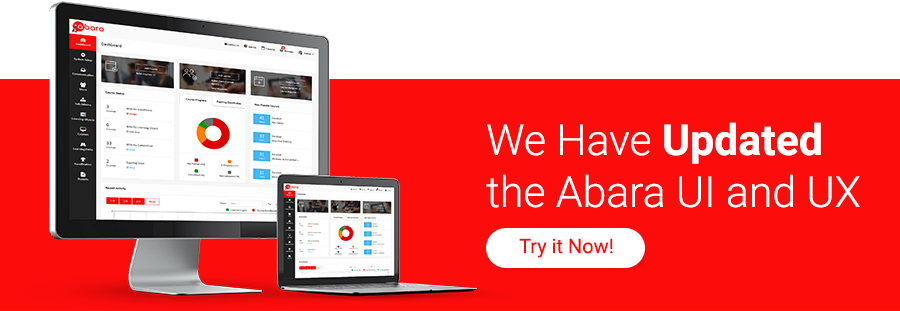The pandemic has changed the way training companies operate forever, or at least for the next few years. Training companies relying on instructor-led training had to change their approach diametrically or get left behind.
No one expected 2020 to change everyone’s work-life around so dramatically. The pandemic came out of nowhere and is showing no signs of slowing down. Multiple waves are happening around the world, with variants changing the trajectory and even challenging the effectiveness and long-term protection from vaccinations.
Employees in both small and large organizations had to shift from their office structures /building spaces surrounded by peers and mentors to a workroom home and remote environments.
This had a tangible impact on training companies as a vast majority of them had trainers visiting organizations at their offices on a predefined timeline to deliver training. Whether they were training employees of corporate clients in Business to Business (B2B) mode to improve their knowledge and skills in their current role, or training learners in a direct to customer (D2C) to improve their knowledge and skills, face-to-face training has taken a back seat.
This article outlines why it is imperative to adapt to this big change. Most training companies have already migrated or have adopted a LMS. The training companies who leveraged technology vastly outgrew the other training companies still not geared for the change.
On this Page
Why do training companies prefer the LMS?
Work from home is here to stay
Even after the pandemic ends, a ton of companies will shift or keep a sizeable portion of their work staff working remotely or from home.
There are major advantages for a work-from-home scenario for both employees and employers https://www.entrepreneur.com/article/253896.
These companies still need to engage their employees for their current roles and train them for their next roles. Office-based meetings have come to a grinding halt and have shifted to platforms like ZOOM or WebEx. Such platforms have shown exponential growth to 300 million meetings per day, but employers still need to train their staff. This is the role where training companies need to leverage an LMS to reach out to their customers’ employees based at their homes or remote locations to deliver their curated training content, on-time, and across geographies.
Every delivery medium of training content has its advantages and disadvantages. However, the benefits of using a good LMS system far outweigh the traditional approach.
Double the outreach
https://elearningindustry.com/advantages-of-online-training-9 Organizations can now reach out to employees over larger geographies, including remote employees at a lower cost. While at the same time being more creative, standardized, fluid, scalable, and time-sensitive both online and offline, a training company with a good LMS can basically future-proof themselves with blended training. Offer virtual-live training in the present circumstances, and classroom training mixed with live virtual training and/or self-paced digital when the situation improves.
Win WIN situation for all
Everyone wins with a good LMS system being the first step – the organization, the employees, and the trainers.
- The organizations get a viable and scalable medium to reach their employees for onboarding, certification, engagement. This also helps retain them.
- Employees get to be updated and connected, with a chance to enhance their skills and knowledge to further their own career path while working from home or remotely.
- Employers and employees reap the benefits of saving costs of travel, flexibility in time, measurability of the training program effectiveness, getting standardized content and tailor-based content basis the requirement.
- Training companies and their trainers get to showcase their years of expertise via a digital platform with a more creative and streamlined method.
The Millennial generation
This age bracket as per studies will form around 75% of the workforce by 2025. This generation is well versed in accessing technology, social media, and online platforms. Training companies can deliver their content to this target audience via a large arsenal of mediums on laptops, tablets and even mobile phones. This would mean the employees are no longer constrained by geography, time, or training delivery system. A good LMS provides options in delivery to the customer, both in online and offline modes.
Scope and the way ahead
eLearning or Digital Learning is a multibillion-dollar business and is estimated to surpass $300 billion by 2025. This growth has been further accelerated due to the pandemic and work from home scenario. For training companies, this is a paradigm shift from their traditional approach to online training. eLearning or digital learning is possibly the most future-proof step they can take to grow and enhance their reach in the global market, giving them a competitive advantage.
How to choose the right Learning Management System for training companies:
Choosing the correct LMS for Training companies based your circumstances is critical.
The companies who have not yet jumped on the bandwagon of this revolution need to understand how learning management systems are assisting training companies to reach the next level.
Training companies that are still sitting on the fence and wanting to explore this technology can take a free trial or demo of our learning management system to explore where your organization’s goals and your customers’ needs can converge. The future is virtual training. You can take your first step right here – ABARA offers a risk-free trial for 30 days.
This will help you reach more customers across geographical boundaries and be a part of this growing billion-dollar industry.


